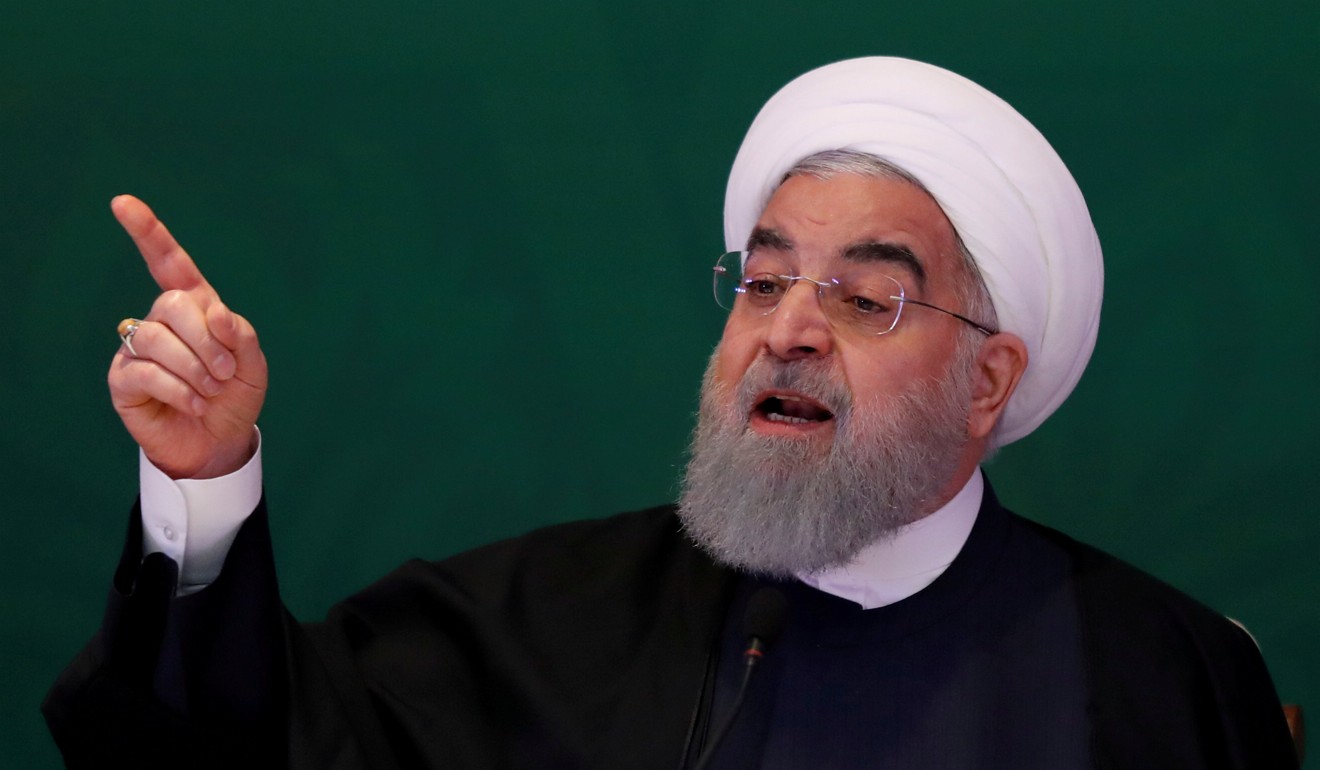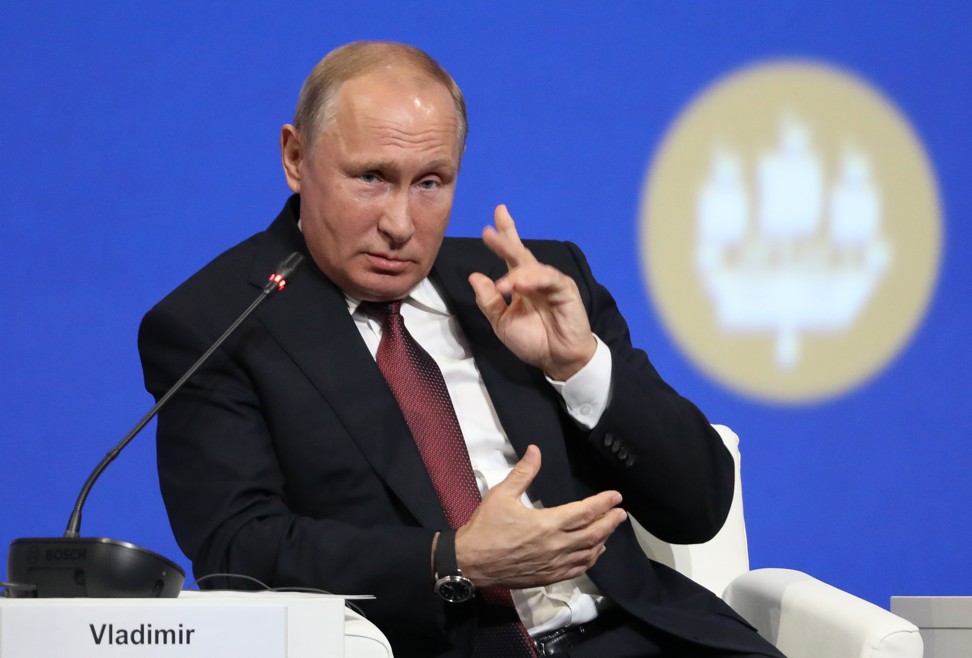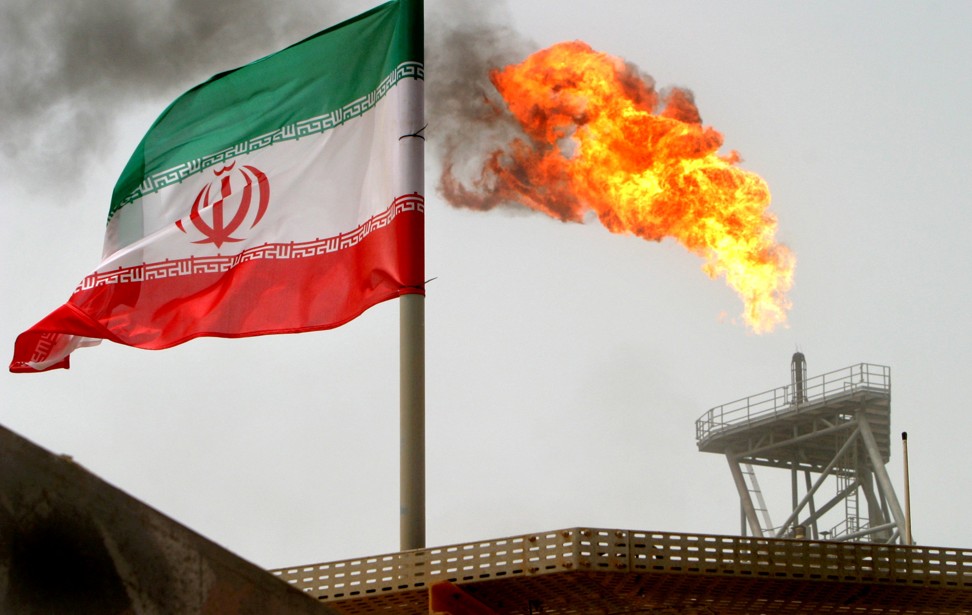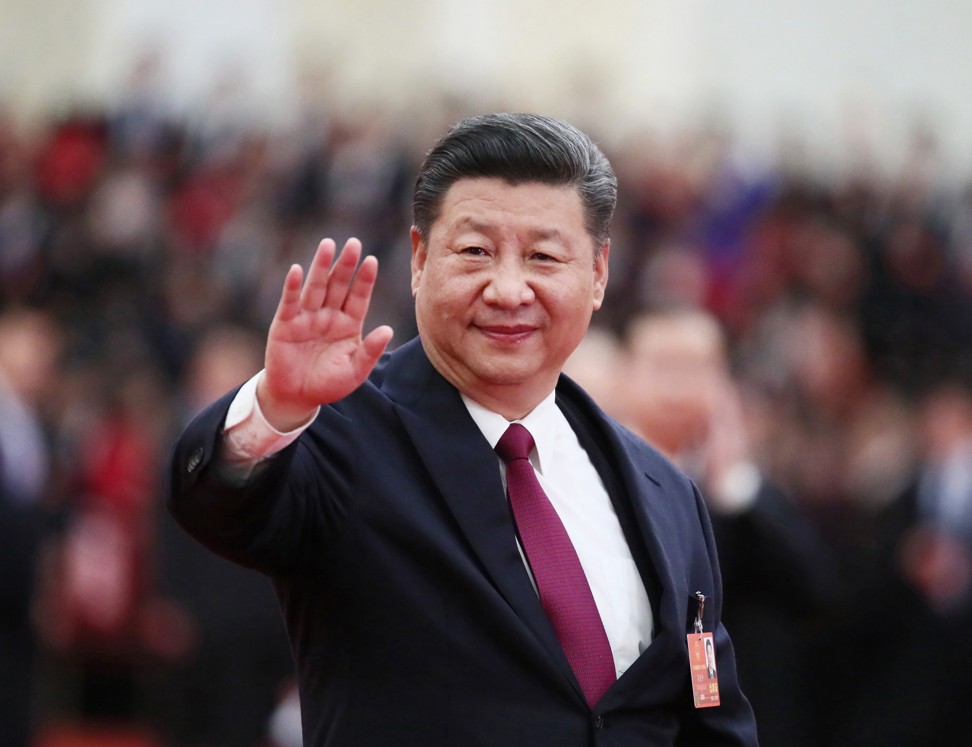
China, Russia set to show support for Iran nuclear deal at security bloc summit, observers say
Beijing confirms members of Shanghai Cooperation Organisation, which includes India and Pakistan, will meet in Qingdao from June 9-10
A regional summit to be held in China next month and attended by the heads of state from Russia, Iran, India and Pakistan will provide symbolic support for the Iran nuclear deal, which saw its future called into question after the withdrawal of the United States, analysts said.
Members of the Shanghai Cooperation Organisation (SCO), a security bloc led by Beijing and Moscow, will meet in the northern coastal city of Qingdao from June 9-10, China’s Foreign Minister Wang Yi confirmed on Monday.
The summit follows Chinese vice-president Wang Qishan’s visit to Russia – his first overseas trip in his new role – where he and Putin spoke over the weekend at an economic forum in St. Petersberg against the backdrop of rising trade tensions between China and the US.
Putin, who was recently sworn in for a fourth presidential term, also had harsh words for the White House decision to pull out of the 2015 Iran nuclear deal, a move that angered several major European powers. China is another signatory to the deal, which eased economic sanctions on Iran in exchange for restrictions on its nuclear facilities.
Srikanth Kondapalli, an expert on China affairs at Jawaharlal Nehru University in New Delhi, said that while supporters of the Iran deal scrambled to save it, the SCO was likely to issue a statement about the situation in the Middle Eastern country in a bid to put more diplomatic pressure on the US.
“Russia and China have huge concerns about the recent developments,” he said. “India will also be concerned … China and India are facing energy security problems because Iran is a huge supplier to them both.”
Alexander Gabuev, a Russia expert at the Carnegie Moscow Centre, said that Rowhani’s presence at the SCO would also be symbolic for Iran in showing it has the backing of the international community.
“For the Iranians, it’s really important to come to the SCO, to Qingdao, to show that there is solidarity among other non-American members on the [deal],” he said. “For China and Russia, it’s about the symbolic endorsement of the deal.”
Zhang Xin, a Russian studies expert at the East China Normal University, said that both Beijing and Moscow would continue working with Iran – including collaborations in the fields of nuclear power, energy and finance – despite the United States’ withdrawal from the deal and the spectre of further sanctions.
“The withdrawal of the US from the Iranian nuclear deal was somewhat anticipated, given how the current US leadership behaves,” he said.
While Iran will be pushing to secure full membership of the SCO in Qingdao, it is unlikely to be successful in the near-term, the analysts said.

Gabuev said the summit would centre on regional cooperation in central Asia amid the deteriorating security situation, as well as greater economic cooperation under Chinese President Xi Jinping’s signature “Belt and Road Initiative”.
Beijing has been pushing for greater cooperation to combat the “three evil forces” of terrorism, extremism and separatism, noting regional security concerns including drug trafficking and transnational organised crime.
Tugrul Keskin, an associate professor at Shanghai University, said Iran was a strategic partner of China’s not only on common security threats in central Asia and the Middle East, but also energy cooperation.
“One of the most important issues in central Asia is extremism and terrorism,” he said. “Another important issue for China is central Asian economic development, which cannot be ignored. Poverty and economic inequality creates separatism, extremism and terrorism.”
On the economic side, as central Asia’s largest investor China has poured billions of dollars into energy and infrastructure projects in the region, including the Khorgos Gateway in Kazakhstan and a major gas pipeline in Tajikistan.
Kondapalli said the SCO summit would also see a “new balance of power” in the bloc, with Russia’s position strengthened by India’s presence and China’s bolstered by Pakistan.
India would be keen to cooperate on counterterrorism, energy security, economic development, border stability, and also to endorse multipolarity, he said.
Sino-Indian ties warmed slightly in April after an informal meeting between Xi and Modi, but Beijing has yet to secure Delhi’s support for the belt and road scheme because of projects India sees as violating its territorial sovereignty.




